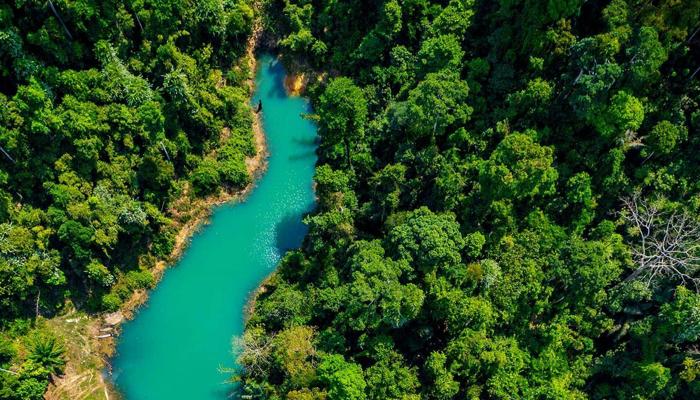Embark on a journey to 8 Eco-Friendly Destinations in India, where nature's beauty meets sustainable travel. Read more!
Namaste, fellow travelers! Are you tired of the city's hustle-bustle and yearning
for some shanti in the lap of Mother Nature? Well, you're not alone! More and more Indians are now choosing eco-friendly tourism, seeking rejuvenating experiences that also give back to the planet.
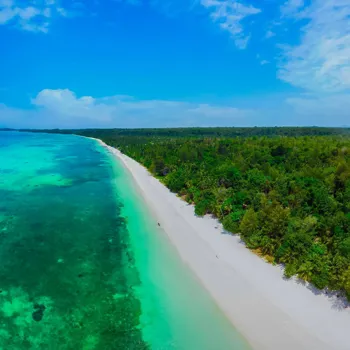
Forget crowded malls and polluted streets, let's explore some pristine paradises where you can breathe easy and travel responsibly. We have curated a list of eight amazing eco-friendly destinations in India that promise breathtaking views while minimizing your carbon footprint.
Get ready to pack your bags for an unforgettable journey!
Explore eco-friendly stays, trek, support locals in Munnar, Kerala
First up is Munnar, Kerala, a picture-postcard hill station famous for its sprawling tea gardens and misty mountains. Instead of opting for conventional hotels, consider staying in eco-lodges that promote sustainable practices and local communities.
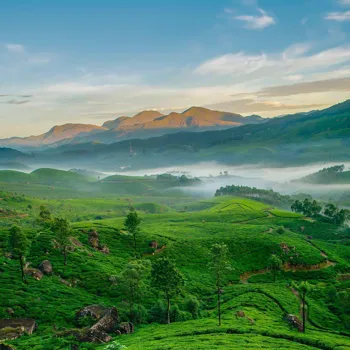
These lodges often use solar power, rainwater harvesting, and organic farming to minimize their environmental impact. While in Munnar, ditch the taxis and explore the hills on foot or by borrowing bicycles from your accommodation.
This not only reduces pollution but also allows you to fully immerse yourself in the breathtaking beauty of the surroundings. Take a guided tour of tea plantations where you can learn about the entire process of tea making, from plucking to processing, while supporting local farmers.
Remember not to litter and carry reusable water bottles to stay hydrated. Munnar’s stunning beauty lies not only in its landscapes but also in its eco-conscious soul.
Remember to purchase handicrafts, spices, and teas directly from the local community, ensuring your money directly supports their livelihoods. These small actions can significantly contribute to sustaining Munnar’s natural beauty for generations to come.
Explore Ladakh responsibly to protect its environment and culture
Next, we head north to the serene valleys of Ladakh. This high-altitude desert is known for its stark landscapes, ancient monasteries, and crystal-clear lakes. Opt for homestays run by local families to experience Ladakhi culture firsthand and support the local economy.

These homestays often serve traditional vegetarian meals prepared with locally sourced ingredients, reducing your carbon footprint. While exploring Ladakh, be mindful of the fragile ecosystem. Stick to designated trekking trails and avoid disturbing the wildlife.
Carry reusable bags to avoid using plastic and dispose of waste responsibly. Ladakh is also a fantastic place for stargazing, thanks to its clear night skies and minimal light pollution.
Join a stargazing tour with a local guide to learn about the constellations and the importance of preserving the dark skies. By choosing responsible travel options, you can contribute to the conservation of Ladakh's unique environment and cultural heritage.
Every effort to reduce waste and preserve the natural beauty helps ensure the sustainability of this captivating destination.
Explore eco-friendly Meghalaya, preserve nature, support local communities
Let’s turn our attention to the east, specifically Meghalaya, also known as the “abode of the clouds.” This state is famous for its lush rainforests, living root bridges, and cascading waterfalls.
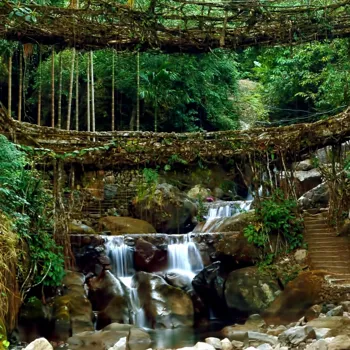
To truly experience Meghalaya’s eco-friendly side, explore homestays and eco-resorts tucked away in remote villages. Many of these establishments actively involve the local community in their operations and prioritize sustainable practices.
The living root bridges are a prime example of how humans and nature can coexist harmoniously. These bridges are created by training the roots of rubber trees to grow across rivers, providing a sustainable and eco-friendly alternative to traditional bridges.
When trekking through the forests, hire local guides who can share their knowledge of the flora and fauna while ensuring you stay on designated trails. Respect the local customs and traditions, and avoid any activities that could harm the environment.
Meghalaya's natural beauty is its greatest asset, and by traveling responsibly, you can help preserve it for future generations. Take the opportunity to learn about initiatives for waste management in these remote regions and support them whole-heartedly.
Explore Coorg's coffee culture sustainably in the Western Ghats
Moving to the Western Ghats, we arrive at Coorg, Karnataka, a paradise for coffee lovers and nature enthusiasts. This region is known for its rolling hills, dense forests, and, of course, its aromatic coffee plantations.
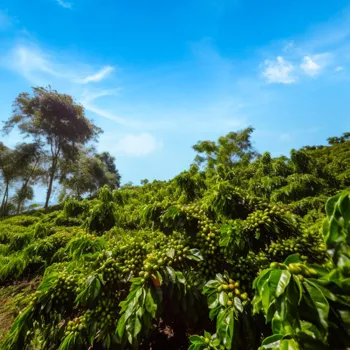
Look for eco-friendly accommodations within coffee plantations to experience sustainable living firsthand. These accommodations often offer tours of the plantations, explaining the various stages of coffee cultivation and processing.
Engage in activities like bird watching and nature walks to fully appreciate the region's biodiversity. To minimize your environmental impact, consider taking part in tree-planting initiatives or supporting local conservation efforts.
When buying coffee, choose products that are grown and processed using sustainable methods and support local farmers. Coorg's natural beauty is closely linked to its coffee culture, and by supporting sustainable practices, you can contribute to preserving this unique heritage.
The best time to visit is during the harvesting season but every effort should be made to reduce waste and manage resources responsibly.
Explore Kerala backwaters sustainably, support local communities
Our next stop brings us to the serene backwaters of Kerala. Ditch the noisy motorized boats and opt for traditional houseboats powered by solar energy or rowboats guided by locals. These eco-friendly options allow you to experience the backwaters in a peaceful and sustainable way.
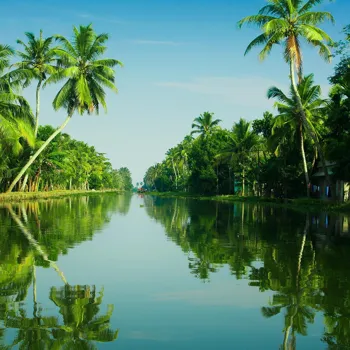
Many houseboat operators are also committed to responsible waste management and ensure that the water remains clean. Enjoy the tranquil beauty of the backwaters, spot diverse birdlife, and learn about the local culture from the boatmen.
When visiting villages along the backwaters, support local artisans and purchase traditional handicrafts made from natural materials. Be mindful of the delicate ecosystem and avoid disturbing the natural environment.
The Kerala backwaters are a unique and precious resource, and by traveling responsibly, you can help ensure its preservation for future generations.
Embrace the opportunity to support local communities and contribute to sustainable tourism initiatives that benefit both the environment and the people.
Explore Andaman & Nicobar responsibly, protect marine life & support local conservation efforts
Finally, we journey to the Andaman and Nicobar Islands, a tropical paradise known for its pristine beaches, coral reefs, and lush rainforests. To protect the delicate marine ecosystem, choose eco-friendly diving and snorkeling operators who follow responsible tourism practices.
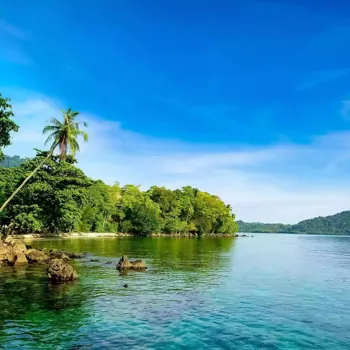
Avoid touching or damaging the coral reefs, and refrain from collecting seashells or other marine souvenirs. Stay in eco-resorts that implement sustainable practices such as waste management, water conservation, and energy efficiency.
Support local initiatives that promote marine conservation and community development. When exploring the islands, be mindful of the local culture and customs. Respect the privacy of the indigenous communities and avoid venturing into restricted areas.
The Andaman and Nicobar Islands are a treasure trove of biodiversity, and by traveling responsibly, you can help preserve this unique environment for future generations. Consider participating in beach cleanup drives or supporting local organizations committed to environmental conservation.
Every small action counts when it comes to protecting the fragile ecosystem of these tropical islands.
AI Generated Content. Glance/InMobi shall have no liability for the content